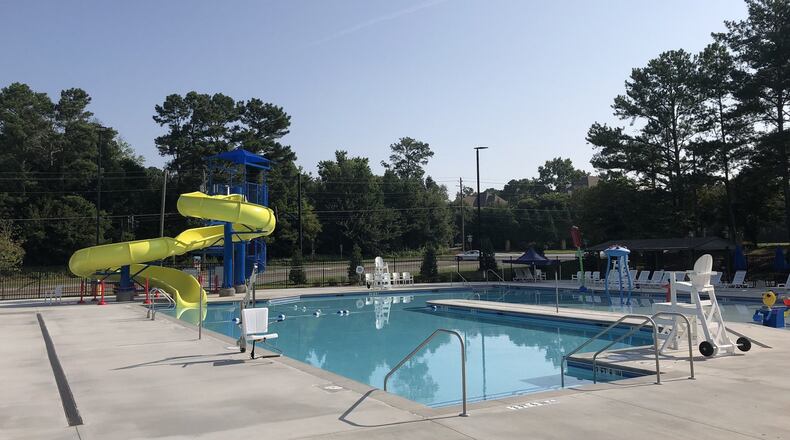In part, April Stevenson moved to her Milton community because her children, along with dozens of others in the neighborhood, could participate in activities at the Alpharetta community center at the same price as children who lived there.
But the agreement between the two cities that called for the governments to pay the out-of-city fees for residents has expired, and Milton residents like Stevenson are expressing frustration with the lapse, which has left her cheaper access in flux. It’s one of the growing pains that comes as a new city tries to figure out the best way to serve residents’ needs.
Milton was formed in 2006, and since 2012, residents there have been able to sign up for Alpharetta programs without paying the 75 percent premium that other non-Alpharetta neighbors must pay. The agreement works both ways — Alpharetta residents can also use Milton programs without a surcharge — but because Alpharetta is bigger and more established, it has more to offer.
The agreement has cost Milton more than $2.2 million over six years, including nearly half a million in 2017. In addition to covering the out-of-city surcharge, Milton also pays Alpharetta an additional fee to cover investments in parks that are needed because of the increased use.
The decision not to renew the agreement was made in order to invest that money into the city’s own offerings, said Jim Cregge, Milton’s director of parks and recreation. But it’s led to emails and Facebook posts from people like Stevenson, who wrote to tell the city the move was “extremely disappointing” and would significantly increase her costs and lessen the ability of her family to interact with neighbors.
It’s further complicated by the fact that some Alpharetta facilities — North Park and the Crabapple Government Center — are completely surrounded by Milton. That’s also a legacy of cityhood. The assumption was that Alpharetta would expand its boundaries to capture the parks, but when Milton formed, that was no longer the case.
Now, Milton leaders are trying to balance the desire of residents to keep the status quo with their own ambitions for the city.
“As a young city, we didn’t have the wherewithal to provide programs and we didn’t want our citizens to pay a penalty because we just weren’t mature enough,” Scott Stachowski, Milton Parks and Recreation Advisory Board, told city council members in November.
Milton Mayor Joe Lockwood said earlier this month that the city has added programs and facilities, and is better positioned to give residents what they need. Milton has both purchased and expanded park facilities, Cregge said, and now has some offerings that overlap with those available in Alpharetta. He’s hoping to spend the money saved on Alpharetta fees to spend in Milton, instead. But Cregge said the city is willing to renegotiate the agreement, if it’s less onerous.
“We’re reaching a point where we have to invest in our own city,” he said.
About the Author
Keep Reading
The Latest
Featured




